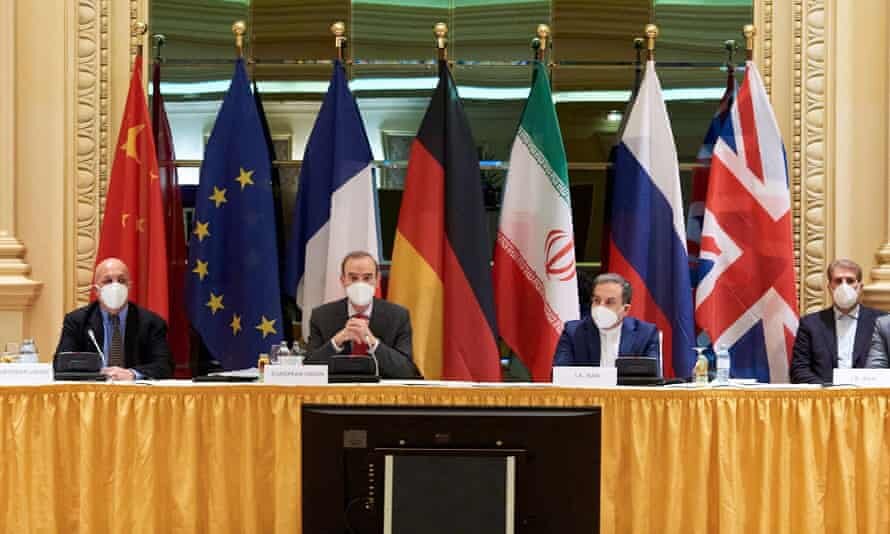Russia, China hail success at Vienna nuclear talks

TEHRAN – Russian and Chinese diplomats participating in Vienna discussions over how to resurrect the 2015 Iran nuclear deal welcome progress made in the latest round of talks.
Wang Qun, the Chinese envoy to the United Nations and other international organizations in Vienna, said that the negotiations in recent days have been “beneficial” and that the current negotiations have entered a new stage, according to the Chinese state news agency Xinhua.
Wang, who leads the Chinese negotiating team at the Vienna talks, underlined the need to completely lift U.S. sanctions on Iran and third parties.
“Complete lifting of all relevant sanctions, including those on Iran and third parties, is the key to the success of the current negotiations to revive the 2015 Iran nuclear deal,” the Chinese diplomat was quoted by Xinhua as saying after attending the latest round of talks between Iran and the P4+1 (China, Russia, France, and the UK plus Germany).
Diplomats from Iran and the P4+1 are in the Austrian capital of Vienna to discuss ways to revitalize the nuclear deal, officially known as the Joint Comprehensive Plan of Action (JCPOA). Over the past few weeks, they held several rounds of intensive talks aimed at bringing Iran and the U.S. back to full compliance with the nuclear deal.
The latest meeting of the JCPOA Joint Commission was held on Tuesday. The meeting was chaired by Enrique Mora, the deputy secretary general and political director of the European External Action Service (EEAS), and attended by representatives of China, France, Germany, Russia, the United Kingdom and Iran. Seyed Abbas Araghchi, the deputy foreign minister of Iran, led the Iranian negotiating team.
“China welcomes the Joint Commission's intensive talks through the two processes -- the nuclear implementation and sanctions-lifting working groups' work, and the ‘proximity talks’ with the United States -- to draft texts of an arrangement for the U.S. and Iran to resume compliance with the deal,” Wang noted.
The Chinese diplomat said that all parties now have a clearer understanding of the framework and main elements of the aforementioned arrangement. These efforts laid a solid foundation for the next stage of negotiations of the Joint Commission, he noted.
Wang pointed out that China firmly supports the resumption of JCPOA implementation by the U.S. and Iran “as soon as possible,” and that China is ready to work hand in hand with relevant parties to promote the talks on substantive texts, with the aim of achieving results acceptable to all parties at an early date.
Russia also welcomed the Vienna talks by saying the so-called “maximum pressure” campaign launched by the previous U.S. administration against Iran has failed.
Russia’s representative to the international organizations in Vienna Mikhail Ulyanov said on Twitter that there is no realistic alternative to the JCPOA.
“Why do almost all countries support restoration of JCPOA? Because it is a key element of the international non-proliferation architecture. The deal, if restored, can provide credible assurances of peaceful character of the Iranian nuclear program via intrusive IAEA verification,” the Russian diplomat tweeted.
He added, “Some people oppose JCPOA restoration. But is there a realistic alternative? No. Maximum pressure policy totally failed and just prompted development of the Iranian nuclear program beyond 2015 parameters. This is a matter of fact. Does anybody want this trend to continue?”
Former U.S. President Donald Trump initiated his so-called pressure campaign against Iran after withdrawing the U.S. from the JCPOA in May 2018. According to this policy, the White House imposed far-reaching economic sanctions on Iran, which prompted Iran to reduce its commitments under the JCPOA. Iran is now calling on the U.S. to remove sanctions in exchange for reversing its own nuclear activities.
Leave a Comment